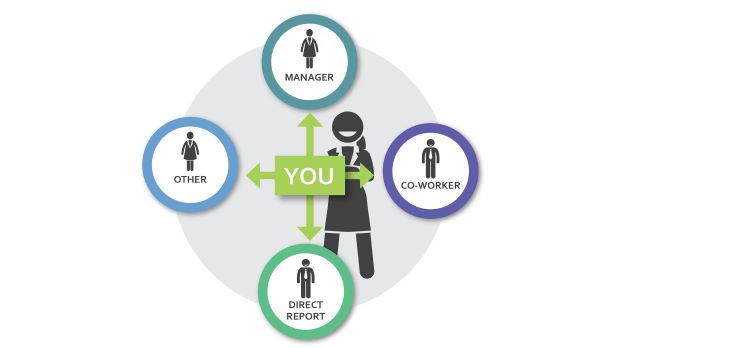
360-feedback tools are commonly used in organisations, especially for those who have been promoted into a leadership or management position, or those already in one and taking part in a leadership development programme.
They can be a powerful, multi-dimensional tool that draws upon the knowledge of people within a leader’s own circle of influence within their working environment. The data gleaned from a 360-feedback report can help generate awareness of blind spots and create an appetite for change on behalf of the recipient.
But when set up and administered poorly, using 360 can generate a host of issues, such as:
All of which may create a situation in which the leader could feel they’re being unfairly exposed to criticism and forced to face into things they don’t want to. They may feel vulnerable or judged and possibly that they’re being forced to adopt a more ‘acceptable’ style. This all increases a leader’s resistance and will decrease their readiness to change.
Meanwhile the financial and time investment goes unrealised.
However, when the top tips below are followed, 360-degree feedback can offer leaders powerful insights into ways they can improve their impact on the business and people around them.
How can you maximise the benefits of a 360-feedback approach in your organisation?
If you’re at the very beginning of the 360 process, the first question you may be asking yourself is ‘how do I know if my organisation is ready to conduct 360 feedback?’
What are the checklist of factors to you need to consider before you start?
Organisational History – the past doesn’t have to predict the future
Has your company struggled to effectively use 360-degree feedback in the past?
Previous disasters does not guarantee future disasters, yet they do help you learn from mistakes and form better foundations. Make sure you look at what didn’t work last time and plan ahead to avoid these pitfalls. Where there any successes that you can build on?
Culture – a feedback-rich culture takes time
Do you worry that there isn’t enough trust and engagement to support the open sharing of feedback?
Are leaders not being encouraged and held accountable for coaching and developing other leaders?
360-degree feedback when done well enhances the direct report-leader relationship. As leaders strengthen their leadership behaviours in areas identified by others, people will feel encouraged that their feedback matters and continue to openly share their thoughts and constructive advice.
Leadership – “Great leaders do not create followers; they create more leaders”
Did visible executive sponsorship fail last time?
Are your company’s senior leaders unwilling to be personally involved in the 360-degree feedback process?
Senior leaders must lead the way and set the example for the rest of the organisation. Be sure to find ways for them to be champions for the process, including sharing openly their personal stories of how they have learned from 360-degree feedback in their own career.
Resources – giving and receiving feedback as an essential skill
Has there previously been a lack of support for leaders receiving feedback to assist them in interpreting and understanding their 360-degree feedback report?
Are they not very good at giving and receiving feedback?
Two of the biggest predictors of a successful 360-degree feedback process is whether observers are engaged upfront to provide feedback, and if leaders have a proper debrief of their report allowing them to create and to act upon a development plan.
Get your leaders to take our quiz at www.jmaquiz.com to find out how good they are at giving and receiving feedback – and what they can to do sharpen their skills.
Tools – use the right tool for the job
Do you lack a leadership competency framework or set of behavioural expectations?
Is a plan for the practical implementation of the 360-degree feedback process missing?
Many consultancies specialise in the design and development of leadership assessment tools and can assist you in aligning your 360-degree feedback initiative with your competency model (either one you have developed in-house or one you are adopting from an external source).
If this has prompted questions or concerns, I would be happy to discuss and share approaches that will facilitate a successful 360 process.
Reach out to me on + 44 (0) 1604 340990 or via: [email protected]
Jo Manton is an Executive and Leadership Coach, a Strozzi Institute certified Somatic Coach and qualified facilitator for The Leadership Challenge Workshop and Leadership Practices Inventory. Jo specialises in helping clients feel as successful on the inside as they look to others on the outside.
Read more blogs from Jo: Leadership Workout: 6 Ways to Develop your Leadership Muscles – without going to the gym!

+ 4 more
Executive coach working with individuals & teams to increase leadership performance